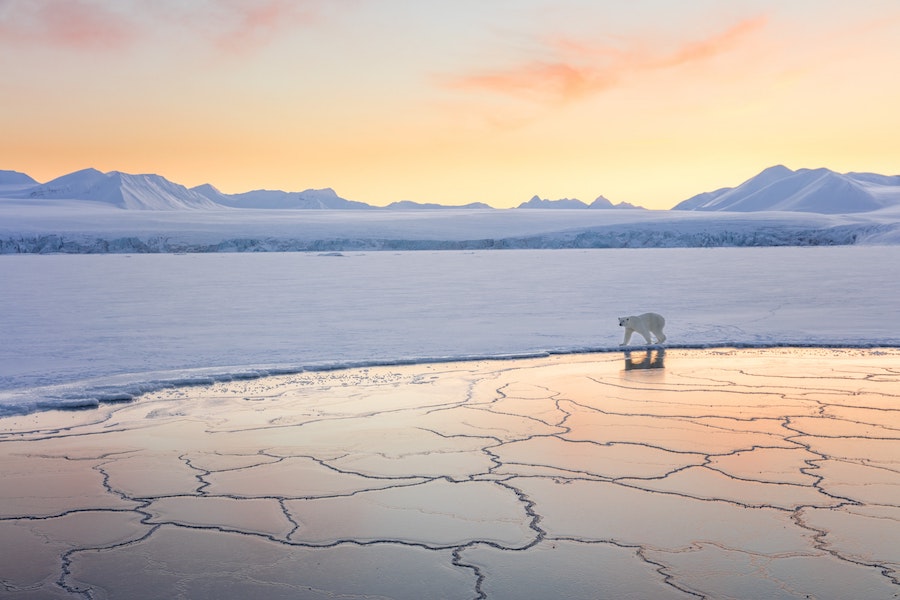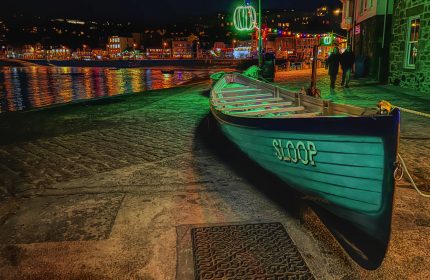Shortlist from the Wildlife Photographer of the Year People’s Choice Award
Here are the 8 photos shortlisted from the Wildlife Photographer of the Year People’s Choice Award
If you love the Natural History Museum’s Wildlife Photographer of the Year Awards, then now is your chance to get involved and vote for your favourite for the People’s Choice winner.
Nature fans can choose from 24 images selected from almost 50,000 submissions from 92 countries. The shortlisted images are on display at the Natural History Museum in London until the vote closes, and the winner of the People’s Choice Award will be showcased until the whole exhibition closes on May 28.
And it’s a big deal – Wildlife Photographer of the Year is the longest-running and most prestigious competition of its kind. It’s part of the museum’s mission to inspire curiosity about the natural world through the power of photography, and look for answers to issues facing the planet.
From birds bathing to a too-close-for-comfort leopard, here’s our pick of the images you can vote for.
1. Roller Rider: by Lakshitha Karunarathna, Sri Lanka

Lakshitha was on safari at Maasai Mara National Reserve, Kenya, when he saw a lilac-breasted roller hitching a ride on the back of a zebra. These little birds usually prefer to perch high up in the foliage, but this maverick roller spent an hour or more on the zebra.
2. Leopard Gaze: by Martin Van Lokven, Netherlands

During a three-week stay in Serengeti National Park, Tanzania, Martin encountered the same female leopard several times – called Fundi by local guides. Leopards are nocturnal and solitary, usually hunting at night, but one afternoon Fundi left the tree she was resting in and approached Martin’s car, fixing his camera lens with her gaze.
3. Pool Party: by Luke Massey, UK

This photograph was taken during the drought in Zambia’s South Luangwa National Park. As waterholes dwindled in numbers and size, flocks of Lilian’s lovebirds, a small African parrot species, congregated together and when the coast was clear, have a drink and bath. Luke watched as they each shuffled forward, taking it in turns, as if on a conveyor belt.
4. Warm Embrace: by Debra Garside, Canada

Polar bears are the largest land carnivores in the world and you wouldn’t want to get too close to one, but this touching image of a polar bear and her cubs shows their softer side. When polar bear mothers and cubs emerge from their dens in the early spring, the cubs stay close for warmth and protection before they’re strong enough to trek across the sea ice with their mothers. Debra braved challenging conditions for six days with temperatures from -35 to -55 degrees Celcius and high winds, to catch this shot.
5. Warning Wings: by Mike Harterink, Netherlands

Mike was diving off Blue Bead Hole in St Eustatius, in the Caribbean, when he spotted this ‘flying’ gurnard. These fish have shorter forward fins with spines which they use to poke around for food, as well as larger wing-like fins. The fins are usually held against its body but when threatened, the gurnard expands them to scare away predators – which Mike used a slow shutter speed to capture.
6. Dark Side of the Plains: by Uri Golman, Denmark

Black and white might be an unusual choice for safari photography, but Uri spent a whole week just taking pictures in monochrome on the plains of the Maasai Mara National Reserve, Kenya, and spent most of it taking pictures of big cats. But it was a group of giraffes that stuck with him in the end. After following them for a while, three broke off and headed into the shadows, creating this amazing shot.
7. Reach for the Sky: by Steven Blandin, USA

If you ever wondered what a bird looks like landing right in front of you, this is it. Steven was photographing a group of Roseate spoonbills, which have distinctive pink feathers. He saw a newcomer flying in from afar and managed to take a few steps back and position himself so the bird could land square in front of his camera. Its wings created a stunning symmetrical U-shape.
8. Settled In: by Ryan Miller, USA

The city of Anchorage, Alaska, sees frequent moose, and this bull is known as Hook to the locals. Moose antlers are deciduous and every year they fall off ready for regrowth. Ryan knew from the previous year that Hook would be ready to shed his antlers in the coming days and he captured the scene in heavy snowfall as the city slept.
Voting closes at midnight on February 5. See all the other photos and vote for your favourite at nhm.ac.uk.
The Press Association
Latest posts by The Press Association (see all)
- Is sitting too much bad for you? - November 27, 2024
- Sir Rod Stewart ‘proud and ready’ to play legends slot at Glastonbury 2025 - November 26, 2024
- Barbara Taylor Bradford, the ‘grand dame of blockbusters’, dies aged 91 - November 25, 2024
- How to add scent to your natural Christmas decorations and wreaths - November 25, 2024
- Chocolate and ginger biscotti recipe - November 24, 2024




















